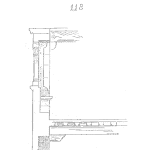
True or False? Reading a book or taking an introductory course on Reliability Centered Maintenance (RCM) enables an organization to successfully implement RCM.
[Read more…]Your Reliability Engineering Professional Development Site
Author of Everyday RCM articles and videos and offers Foundations of RCM course.
This author's archive lists contributions of articles and episodes.
Nancy Regan is a leading authority on Reliability Centered Maintenance (RCM). She has over 20 years’ experience of hands-on practice facilitating RCM analyses, conducting RCM training, and assisting her clients in implementing RCM programs. With RCM, she helps organizations achieve goals such as reducing maintenance costs, identifying the cause of chronic failure, and shifting from a reactive to a proactive maintenance environment. Nancy also helps people overcome the organizational challenges that are in the way of creating an effective Reliability Culture.
by Nancy Regan Leave a Comment

True or False? Reading a book or taking an introductory course on Reliability Centered Maintenance (RCM) enables an organization to successfully implement RCM.
[Read more…]by Nancy Regan Leave a Comment

In today’s video, we’ll outline the educational background and work experience required for an RCM Facilitator, as well as the essential skills and abilities necessary for effective RCM Facilitation.
[Read more…]by Nancy Regan Leave a Comment

True or False? The RCM Facilitator is responsible for checking the technical validity of the RCM Working Group’s answers to the RCM questions.
False! In this video, we explore the true role of the RCM Facilitator, highlighting their responsibilities and why they should not be an expert on the equipment being analyzed.
[Read more…]
In this video, I reveal one of the most common mistakes people make when writing Failure Modes in a Failure Modes and Effects Analysis (FMEA).
Too often, people confuse Failure Modes with Failure Effects, leading to wasted time and ineffective results. But don’t worry! I’ll show you how to avoid this by asking one simple question: “What specifically causes…?” This technique helps ensure you develop proactive strategies that improve equipment reliability, avoid unexpected downtime, and strengthen your overall maintenance plan
[Read more…]by Nancy Regan Leave a Comment

True or False? Reliability Centered Maintenance (RCM) seeks to analyze every Failure Mode.
False! In this short video, I clarify that RCM provides specific criteria for selecting which Failure Modes to include in the analysis. Discover the four criteria that guide this selection process. They include those that:
Join me, Nancy Regan, as we break down these criteria and enhance your understanding of RCM!
[Read more…]by Nancy Regan Leave a Comment

In this video, we dive into the significance of operating context when identifying proactive maintenance tasks for your equipment. Have you ever considered how the operating environment impacts maintenance strategies? Using the example of our metal building, we explore how factors like temperature and operational conditions can drastically affect maintenance tasks and intervals. 🔍 Discover how we determine the operating environment in Reliability Centered Maintenance (RCM) analysis, including:
We also discuss how operating context influences not only maintenance strategies but also other important failure management strategies, such as emergency procedures and equipment redesigns.
[Read more…]by Nancy Regan Leave a Comment

True or False? Reliability Centered Maintenance (RCM) produces more than just a Proactive Maintenance Plan. In this short video, we explore the broader benefits of RCM! Discover how a Facilitated Working Group approach empowers equipment experts to identify vulnerabilities, known as Failure Modes, and develop effective solutions that go beyond traditional maintenance strategies. From new operating procedures to equipment redesigns, RCM can drive meaningful improvements across your organization.
[Read more…]by Nancy Regan Leave a Comment

True or False? Reliability Centered Maintenance (RCM) must be applied to all assets.
False!
In this video, we explore the flexibility of Reliability Centered Maintenance (RCM) and how it can be tailored to your specific needs. RCM doesn’t have to be applied to every asset; instead, your analysis scope should be driven by your goals. Whether you focus on a single piece of equipment, a specific component, or a select group of machines, the approach can vary. Join me as we debunk the myth that RCM must be applied to everything.
[Read more…]by Nancy Regan Leave a Comment

True or False? Reliability Centered Maintenance (RCM) has serious weaknesses in an industrial environment. False!
Reliability Centered Maintenance (RCM) has been successfully applied across nearly every industry—from manufacturing, to oil and gas, to the military, to power generation, and beyond. The original authors of RCM, Stanley Nowlan and Howard Heap, aimed to make RCM principles applicable to all complex equipment, not just airplanes. In this video, we dive into why RCM continues to thrive in diverse environments.
[Read more…]by Nancy Regan Leave a Comment

In this video, I share how Reliability Centered Maintenance (RCM) helps break the cycle of reactive mode by identifying plausible Failure Modes. I’ll explain the four criteria used for listing Failure Modes in an RCM analysis and how this proactive approach helps prevent unexpected downtime. Plus, stick around for a progress update on our building project!
[Read more…]by Nancy Regan Leave a Comment

True or False. Does RCM Always Reduce Scheduled Maintenance? False! Applying Reliability Centered Maintenance (RCM) may reduce scheduled maintenance if your current plans are heavy in scheduled replacement and restoration tasks. But if your organization is in Reactive Mode, RCM might actually result in more scheduled maintenance. The key benefit? Reduced unplanned downtime and significantly improved Equipment Reliability.
Watch to learn how RCM impacts your maintenance strategy! I’m Nancy Regan from Muscle Shoals, Alabama. Thank you for watching!
[Read more…]by Nancy Regan Leave a Comment

Not long ago, I walked into a spider’s web on my stairwell. By the next morning, the web was rebuilt! This persistence reminded me of something my mentor, John Moubray, taught me…
[Read more…]by Nancy Regan Leave a Comment

Hi everyone! In this video, I’m sharing some key insights from the CMC Colombia 2024 conference, where I attended presentations by Ramesh Gulati and Doc Palmer. Ramesh spoke about KPIs and the importance of considering people, not just equipment. Doc Palmer highlighted valuable lessons about planning and scheduling, emphasizing that things don’t have to be perfect to get the job done.
Join me and Doc Palmer as we wrap up the conference with some great takeaways!
[Read more…]by Nancy Regan Leave a Comment

Welcome to Part 4 of our Reliability Centered Maintenance (RCM) Case Study, where we take a deep dive into Condition Based Maintenance (CBM). CBM, also known as On-Condition Maintenance, is a proactive approach that allows us to detect Potential Failure Conditions and take corrective action before failure occurs. In this video, I explain:
by Nancy Regan Leave a Comment

Hi everyone! I’m Nancy Regan, and today I’m coming to you from the iconic pyramid of Chichen Itza in the Yucatan Peninsula, Mexico. The ancient Mayans believed that their pyramid connected them to both the underworld and the sky—a symbol of balance and connection. This powerful idea got me thinking about Reliability Centered Maintenance (RCM) and the importance of leveraging our most valuable resource: equipment experts.
In this video, I’ll explain why equipment experts are crucial to the RCM process. They bring insights that historical data alone can’t provide, understanding how things fail, what causes them to fail, and how each failure matters —what we call consequences in RCM. Documenting their knowledge through RCM not only improves reliability but also preserves their invaluable expertise for the future.
[Read more…]